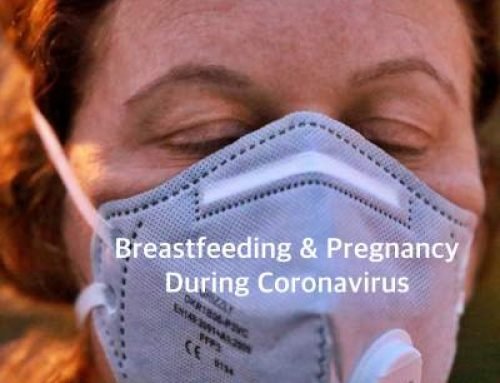The Ultimate Guide for New Mommies
Newborns are not the only ones who are entering a brand new world, but first-time mothers too. Though motherhood is one of the biggest joys in life, it often carries a lot of surprises and it can be intimidating at times. However, this does not mean that newbie mommies are not good in what they do and they can pretty much handle their roles like professionals when they learn how to organize their time, get the right advice, and of course, last but not least, listen to their gut because there is no one who knows their child better than they.
Will they feel pain? Will they be prone to emotional changes? Should they immediately breastfeed their baby or should they wait? Of course, since there are no two same mother and baby, there are no specific “rules” to follow; however, there is a list of useful guidelines that new mommies should take into consideration when they embark on the rocky road to motherhood.
You Gave Birth, What to Expect Next?
During pregnancy, the body changes a lot to keep your little one healthy and safe and once you give birth, as noted on March of Dimers, it will change once more. Let us take a look at what are the most common physical changes that mothers may experience after labor:
- Sore perineum
Perineum refers to the place between the rectum and vagina which expands during vaginal birth and in some case, it can also tear. After labor, it can be sore, especially if you needed an episiotomy. To alleviate the discomfort and speed up the healing, there are several options like doing Kegel exercises, warm bath soaks, over-the-counter meds, sitting on a pillow, and wiping from the front to back to avert infections.
- Vaginal discharge
It is not uncommon for vaginal discharge to elevate during and after pregnancy. Once the baby is born, the body will now remove all the remaining tissue and blood from the uterus. Over time, the flow will lighten and decrease in amount. Opt for sanitary pads until it completely goes away.
- Breast engorgement
Engorgement of the breasts is characterized by swelling due to the filling with milk but it minimizes with breastfeeding. In mommies who do not breastfeed, the discomfort may last until the production of milk ceases. To go through breast engorgement easily, you can always opt for a supportive bra, lay warm towels on the breasts, or consult your physician if you feel excessive pain that is preventing you from performing your daily tasks.
- Constipation
After giving birth, women experience irregular bowel movements characterized by painful gases and flatulence. To encourage bowel movements, increase your water intake, eat fiber-rich foods, and consult your physician about useful meds or supplements.
- Hemorrhoids
These are swollen and achy veins in and around the anus and they are very common during pregnancy and after birth too. To alleviate the discomfort and pain, avoid straining when having a bowel movement, opt for warm baths, increase your water intake, and apply adequate ointments and creams in consultation with your physician, as explained on March of Dimes.
- Burning sensation during urination
Burning while urinating and an inability to “hold it in” are common in the postpartum period. For relief, drink a lot of water, run water when you go to the bathroom, consult your physician if the problem has been present for a longer period of time, and of course, remember to do your Kegels!
What about the Emotional Changes?
In addition to a lot of physical changes going on in women after they give birth, there are several emotional changes that can happen and it is important to recognize them and be able to address them adequately. If you have been feeling rather emotional after labor, it may be due to the following reasons:
- Baby blues
According to statistics, around 80 percent of mothers who give birth experience the baby blues or a set of overwhelming emotions and sudden changes in mood, i.e. depression, anxiety, sudden crying, conflicting feelings, etc. In most cases, these difficulties cease after 10 days or so and they are considered completely natural. In case they are happening for a longer period of time, it may be due to postnatal depression which requires professional assistance.
- Postnatal depression
According to NCT, prolonged depression after birth can be a consequence of the emotional event of having a baby, changes in friendships and relationships, tiredness, insufficient sleep, chronic ache, and challenges to your sense of self. To address this problem properly, it is crucial to consult your physician for adequate support.
5 Tips on Bonding with Your Newborn
- Breastfeed if possible
Breastfeeding is much more than merely food for the baby. When you snuggle it up against you, the baby hears your heartbeat, smells you, and receives reassurance from the skin-to-skin contact.
- Massage him/her
Massaging gently different parts of the baby’s body can have amazing benefits for his/her health. Also, it is a great opportunity to bond with your little one, as pointed out on Parents.
- Eye contact
When you are feeding your newborn, make sure you look them in the eyes so that they can remember who you are and what you mean to them.
- Listen to their heartbeat
It can be a real bonding experience to listen to your baby’s heartbeat; this is definitely music for the ears, both for mommies and daddies.
- Skin-to-skin contact
Since you carried your little one for 9 months in your stomach, both of you are probably missing that connection. Kangaroo care is never a bad idea, i.e. a method of snuggling your little one on your chest (the baby wears only a diaper and a blanket onto his/her back and he/she is placed upright against the bare chest of the parent) to balance their heart rate, regulate their temperature, and to ease sleep and enhance brain development, as suggested on Parents.
Final Thoughts on Being a Newbie in Motherhood
With certainty, there is nothing that can replace the profoundness of becoming a mother and this period in a woman’s life is among the most beautiful and challenging ones. This is especially true for first-time mothers who are trying to accustom to their new role in life and need all the advice they can get.
To get through the first several months after labor easily, it is good to be aware of the major physical and emotional shifts that can take place and learn how to address them properly. What’s more, there are useful set of tips that can help you begin the bonding with your newborn and help him/her adapt easier to you, other family members, and the environment.




[…] at birth is about two and a half to 4 kilograms, and 19 to 21 inches long. Here’s another useful guide for new mommies to help you understand the common physical changes during the […]